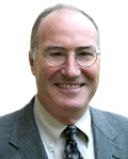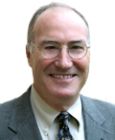Wisdom
Strong Opinions, Weakly Held: Wisdom as the Courage to Act on Your Knowledge and the Humility to Doubt What You Know
Wise people have strong opinions that are weakly held.
Posted February 1, 2010 Reviewed by Ekua Hagan
I've been pretty obsessed with the differences between smart and wise people for years. I tried to write a book called The Attitude of Wisdom a couple of times. And the virtues of wise people—those who have the courage to act on their knowledge, but the humility to doubt what they know—is a primary theme in my writing and research. In Hard Facts, Jeff Pfeffer and I show how leaders including Xerox's Anne Mulcahy, Intel's Andy Grove, Harrah's Gary Loveman, and IDEO's David Kelley turn this attitude into organizational action. I return to this theme in my forthcoming book Good Boss, Bad Boss, where I show how leaders including Pixar's Brad Bird have the attitude of wisdom.
Perhaps the best description I've ever seen of how wise people act comes from the folks at Palo Alto's Institute for the Future. Several years ago, I was talking to the Institute's Bob Johansen about wisdom, and he explained that—to deal with an uncertain future and still move forward—they advise people to have "strong opinions, which are weakly held."
They've been giving this advice for years, and I understand that it was first developed by Paul Saffo when he was at the Institute. Bob explained that weak opinions are problematic because people aren't inspired to develop the best arguments possible for them or to put forth the energy required to test them. Bob explained that it was just as important, however, to not be too attached to what you believe because, otherwise, it undermines your ability to "see" and "hear" evidence that clashes with your opinions. This is what psychologists sometimes call the problem of "confirmation bias."
Full disclosure: I am a board member at the Institute for the Future.


